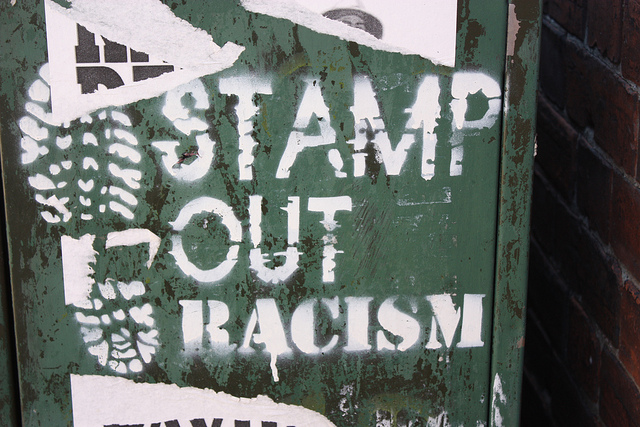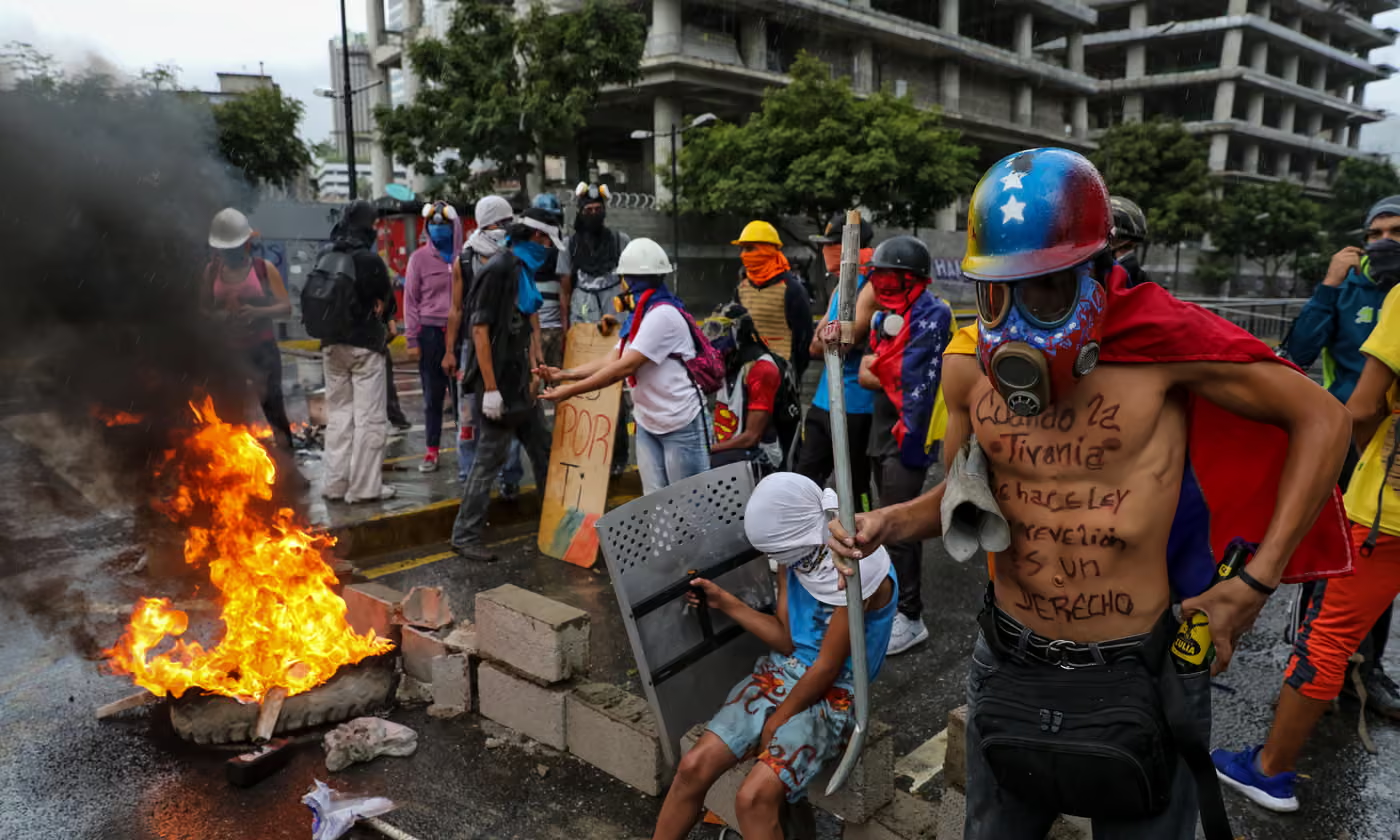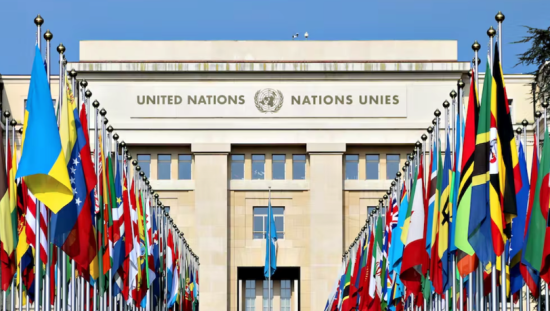It can be easy to belittle the progress made by the political and social systems in Northern Ireland (NI) since the signing of the Belfast Agreement in 1998, but let there be no mistake that the headway being made in NI is remarkable. Despite this growth, the society remains segregated. The two principal groups are broadly labeled as Protestant and Catholic, but the defining characteristics of categorizations are elaborate. Historic, economic, and social factors all contribute to the definitions of these categories. Categorization becomes a question of identity, which is an interactive process that is deeply personal.[i] Underneath the obvious divisions is the reality that there are more than two groups in NI. With the percentage of foreign nationals and ethnic groups growing each year, there is a new dynamic of minority identification in NI that is unfolding.

Identity has long been defined in NI from a top-down perspective.[ii] The Sunningdale Agreement focused on two groups and advocated a power-sharing system between them in an effort to provide stability. The Downing Street Declaration maintained this view of the two communities as the basis for all power-sharing. Even the Belfast Agreement relies on these ethno-national identities. There are some who argue that the negotiation of identity in NI is hindered by the complexity of the term ‘minority’.[iii] When looking at the island of Ireland, Protestants can be seen as the minority, however, in NI, Catholics are the minority. The United Kingdom has ‘pockets’ of minority groups from Wales to Scotland, and so it remains unclear who constitutes the minority across the board. In NI this translates to a double minority, meaning that each side feels disadvantaged and eligible for protection.
Throughout the history of the conflict in NI, both sides have changed their rhetoric regarding the definition of a minority. Despite each side’s claim that it is the minority, the population of NI remains un-diverse, with less than one percent of the population belonging to an ethnic community. This figure is changing as immigration increases. As it has increased so has the number of hate crimes, with the rate rising 900 percent since the signing of the Belfast Agreement.[iv] With the two dominant communities having historically felt discriminated against, why is it that ‘other’ minorities face such unwelcoming conditions?
To start, the conflict is not about the status of one minority group over another, but instead reflects tensions that arise from negotiating conditions between those considered within the community (in-group) or not within the community (out-group). In cases of clear in-groups and out-groups, we also see cases where the in-group is defined as the negative of the out-group.[v] In the case of NI, this would translate to: “I am Catholic because I am not Protestant.” These societal boundaries make it difficult for ethnic minorities to be integrated. Racism is sectarianism’s closest cousin. Crimes committed for sectarian reasons were only recently designated as hate crimes under Northern Irish law.[vi] This suggests that a more progressive definition of hate crime has been formed, with both racial and sectarian-motivated crimes falling into the same category.
There are economic realities that also serve as motivators for the continuation of a segregated society. Eighty percent of individuals polled in NI thought that migrant workers were mostly taking jobs that other people did not want, and more than 50 percent thought that migrant workers were placing a strain on local housing, education, and the health care systems.[vii] These public sentiments do not yield a welcoming environment. These types of reactions by the public validate the view of in-groups and out-groups, particularly in relation to ethnic minorities. With more out-groups, the negative definition of an in-group also grows.
Seventy-four percent of people in NI welcome the fact that other European Union citizens are free to live and work in NI, but 73 percent said that there should be restrictions placed on those coming from Eastern Europe.[viii] These statistics suggest that there is no ideological opposition to individuals coming into NI, but certain groups are not welcomed. Sectarianism and racism are both based on wide-ranging stereotypes of the ‘other’ side. Add to this the anecdotal evidence that many minorities are grouped into either the Protestant or Catholic camp, and you have a blurring of many divisions.[ix] A negative reaction to the Protestant community can transfer to a negative reaction towards the minorities associated with them.
In NI, a system has been designed to appease the two feuding sides. This leaves all other communities on their own to fend for their position within the system. The continued separation of public services is not sustainable, neither from a fiscal perspective nor for the promotion of sustainable peace.[x] Diversity cannot be about overall statistics but must instead be about the statistics of any given street. NI’s population is becoming more diverse overall, but any given street is 98 percent the same; eventually this discrepancy will create tensions, and arguably these tensions have already arisen.
At the time of the signing of the Belfast Agreement, the two primary political parties were widely considered to be moderate parties, capable of bridging the gap between the two extremes that were represented by the Democratic Unionist Party (DUP) and Sinn Fein. However, it was the DUP and Sinn Fein that held the majority stake in the recent elections, with the moderate political parties suffering heavy losses. For ethnic minorities, this polarizing political environment does not bode well for the promotion of multicultural values. It was largely unanticipated that the more hard-line political parties would gain electoral support in the decade following the Belfast Agreement.[xi]
As each political party focuses on appealing to its own group, the attitudes of each group polarize resulting in a more separated system. In a system that is based on equality, this is an intriguing struggle to have. The two communities in NI continue to exist in a segregated yet relatively peaceful society, a fact which says more about how far the system must progress than about how far it has come. Separate but equal under the law does not lead to a united and flourishing society.
The fate of ethnic minorities in NI remains closely tied to identity politics. With concepts of minorities generally fluid, the legal protections remain unsteady. The European Union’s equality legislation, as well as the United Nations Convention on the Elimination of All Forms of Racial Discrimination (CERD), has been a saving grace in ensuring that equal protection is maintained. However, shadow reports submitted by the NI Council on Ethnic Minorities demonstrate the significant gaps NI’s Parliament still must bridge.
Finally, legal protection does not equal physical protection. A 900 percent increase in the number of hate crimes since the signing of the Belfast Agreement is alarming. It communicates the extent of division that still exists, and the dire need for a strong commitment from all parties to continue the conflict transformation process. This process could be greatly hindered if politics continue to polarize the population. Ethnic minorities in NI are growing, and efforts must be made to address integration and security for people to live and work.
[i] Todd, Jennifer, Theresa O’keefe, Nathalie Rougier, and Lorenzo Bottos. “Fluid or Frozen? Choice and Change in Ethno-National Identification in Contemporary Northern Ireland.” Nationalism and Ethnic Politics 12, no. 3-4 (2006): 323-46. Accessed June 6, 2011. doi:10.1080/13537110600882429.
[ii] McQuaid, Sara Dybris. “What Difference Does It Make?: The Construction of Liminal Plurality in Northern Ireland.” Nordic Irish Studies 8 (2009).
[iii] Packer, John, and Kristian Myntti. “Ch 7: Which Rights, Whose Rights? The Identification and Protection of Minorities in British Law.” In The Protection of Ethnic and Linguistic Minorities in Europe, 123-44. Turko/A%u030Abo, Finland: Institute for Human Rights, A%u030Abo Akademi University, 1993
[iv] Tausch, Nicole, Jared B. Kenworthy, Katharina Schmid, Ed Cairns, Miles Hewstone, Charis Psaltis, Jason R. Popan, and Joanne Hughes. “Secondary Transfer Effects of Intergroup Contact: Alternative Accounts and Underlying Processes.” Journal of Personality and Social Psychology 99, no. 2 (2010). Accessed June 6, 2011. doi:10.1037/a0018553
[v] Tajfel, Henri. Social Identity and Intergroup Relations. Cambridge[u.a.: Cambridge University Press [u.a., 2010. Accessed June 5, 2011. http://books.google.co.uk/books?id=h_YA9CYXgG0C&printsec=frontcover&source=gbs_ge_summary_r&cad=0#v=onepage&q&f=false.
[vi] 7 Geoghegan, Peter. “Beyond Orange and Green? The Awkwardness of Negotiating Difference in Northern Ireland.” Irish Studies Review 16, no. 2 (2008): 173-94. Accessed June 6, 2011. doi:10.1080/09670880801994265.
[vii]ANIMATE, Law Centre (NI) and Northern Ireland Human Rights Commission. Your Rights in Northern Ireland: A Guide for Migrant Workers. Report. 2006. Accessed May 20, 2011. http://www.nihrc.org/dms/data/NIHRC/attachments/dd/files/81/EEA_Migrant_Workers___Guide_English_2nd_ed_June_2008.pdf.
[viii] ANIMATE, Law Centre (NI) and Northern Ireland Human Rights Commission. Your Rights in Northern Ireland: A Guide for Migrant Workers. Report. 2006. Accessed May 20, 2011. http://www.nihrc.org/dms/data/NIHRC/attachments/dd/files/81/EEA_Migrant_Workers___Guide_English_2nd_ed_June_2008.pdf.
[ix] Geoghegan, Peter. “Beyond Orange and Green? The Awkwardness of Negotiating Difference in Northern Ireland.” Irish Studies Review 16, no. 2 (2008): 173-94. Accessed June 6, 2011. doi:10.1080/09670880801994265.
[x] 15 “Kamala S. Lakhdhir, US Consular General.” Interview by author. May 19, 2011./ “Connor Maskey Speaking about INTERCOM.” Interview by author. June 03, 2011.
[xi] 21 Mitchell, Paul, Geoffrey Evans, and Brendan O’Leary. “Extremist Outbidding in Ethnic Party Systems Is Not Inevitable: Tribune Parties in Northern Ireland.” Political Studies 57, no. 2 (2009): 397-421. Accessed June 6, 2011. doi:10.1111/j.1467-9248.2008.00769.x.


